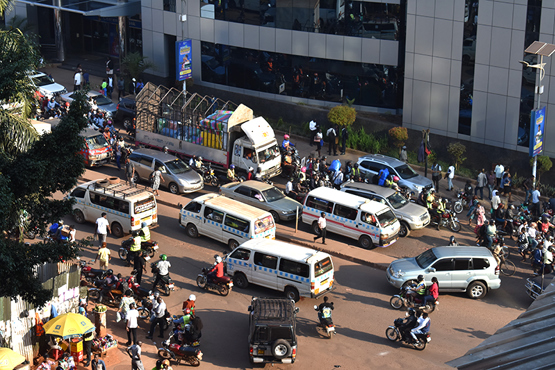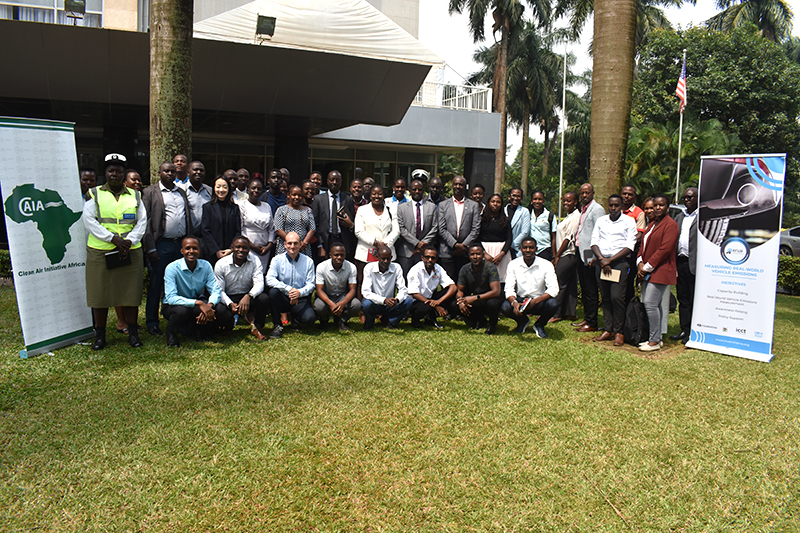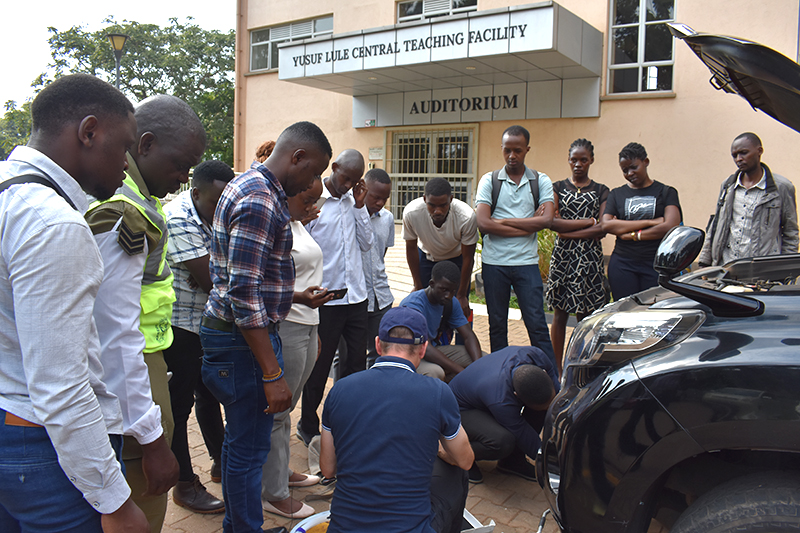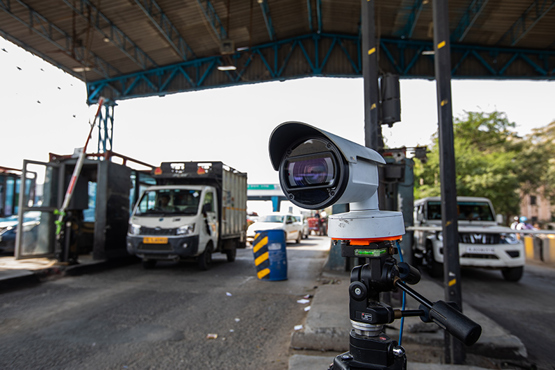First TRUE Africa real-world vehicle emissions testing launches in Kampala, Uganda

The Real Urban Emissions Initiative (TRUE) has kicked off a groundbreaking project in Kampala, Uganda, to measure on-road vehicle emissions, the first to take place in Africa.
The project is the first of its kind on the African continent, with the aim to provide evidence to policy makers on the urgency to improve air quality in the rapidly growing Ugandan capital city. It will also serve as a potential model for other rapidly growing cities in Africa.
Supported by the United Nations Environment Programme (UNEP), the International Council on Clean Transportation (ICCT), and local partners, including relevant ministries, Kampala City Authority, Makerere University and police force, the project aims to test around 4,000 vehicles over three weeks using innovative plume-chasing technology.
The project will capture and analyze real-world emissions from two-wheelers, light, and heavy-duty vehicles, measuring measure pollutants including nitrogen oxides (NOx), black carbon (BC), and particulate number (PN).

This data will provide crucial insights into the quantity and causes of high emissions from on-road transportation in Kampala.
"Uganda, just as many other developing countries, relies heavily on importing used vehicles. This project underscores the critical necessity for importing and exporting countries to uphold stringent regulations and standards for used vehicles. This is imperative to curtail the trade of obsolete, aging, unsafe, and polluting cars," said Jane Akumu, who coordinates the Clean Fuels and Vehicles Programme at UNEP.
The initiative comes at a critical time for Kampala, which has been ranked among the cities with pollution levels 5 to 10 times higher than the World Health Organization's (WHO) annual targeted safe level in recent years.
The transport sector has been identified as a major contributor to this pollution, with the National Management Authority of Uganda (NEMA) attributing nearly 60% of NO2 exhaust emissions within the city center to vehicles.
Air pollution is a global crisis, estimated to cause 7 million premature deaths annually. The WHO reports that 99% of the global population breathes air containing high levels of pollutants, with low- and middle-income countries facing the highest exposures. In Africa, the increasing reliance on used vehicles to meet affordable mobility needs has exacerbated the problem due to a lack of minimum quality standards for imported vehicles.
The findings are expected to raise awareness among policymakers and the public about vehicle emissions and support implementation of measures to regulate vehicle emissions. The data will also serve as valuable input for countries across Africa to understand real-world emissions from their growing vehicle fleets.

Immaculate Nyamaizi, Senior Inspector of Vehicles in Uganda, noted that like many other cities around the world, Kampala, requires a combination of strategies to reduce pollution from transport including:
- Encouraging use of public transport: Incorporate high-capacity vehicles like buses to operate on the different routes in an efficient, affordable and timely manner.
- Improving the infrastructure to accommodate integrated modes of transport: Extension of the railway network to the different parts of the city with the option of transitioning it to being fully electric.
- Adoption of cleaner vehicle technologies: Transitioning to electric vehicles starting with two-wheelers.
- Promoting non-motorized transport: Encourage walking and cycling by including dedicated bike lanes and pedestrian walks along the main roads.
- Digitalisation of transport systems: Optimizing traffic flow through intelligent traffic management systems, synchronized traffic lights and investments in road infrastructure.
“I commend the organizers for this project. It not only enhances our understanding of the impacts of vehicle emissions on climate and public health, but the localized data gathered will empower the government and other decision-makers to enact policies regulating vehicle emissions,“ added Sergeant Ojok Charles, Uganda Police Force.
This project aligns with UNEP's Used Vehicles Programme, which supports the shift to cleaner and safer used vehicles by introducing minimum safety and environmental standards in both importing and exporting countries. The initiative is particularly crucial for sub-Saharan Africa, where most countries, including Uganda, have yet to implement minimum standards for importing cleaner and safer used vehicles.
Photos credit: Paul Kaberere/Environmental Compliance Institute



